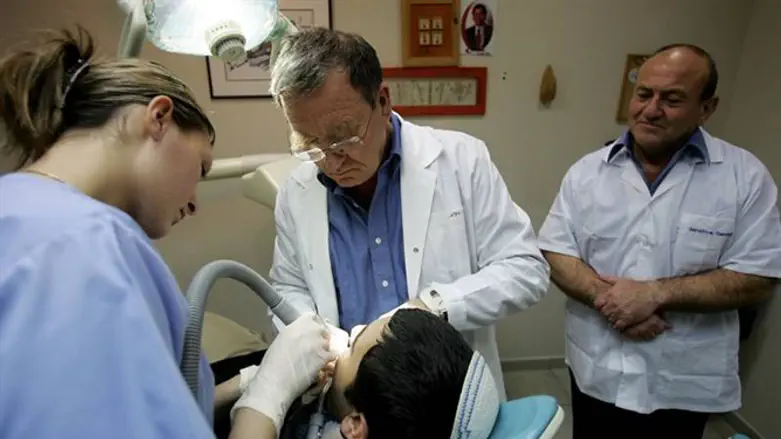
JTA - A group of Brazilian immigrants who have been unable to work in their professions in the health field in Israel demanded work permits during a Knesset session.
Representatives of the Israeli ministries of health, absorption and education, as well as the Jewish Agency, heard claims Tuesday from dentists, psychologists, physiotherapists, phonologists and other professionals who have been waiting for over a year in some cases without an answer about validating their diplomas obtained in Brazil.
“The ministries must give clearer messages to olim so that they can get more appropriately prepared to make aliyah,” Israeli lawmaker Avraham Neguise of the Likud party, told JTA. “Brazilian aliyah is very important, and we want to do our utmost to make it easier for Brazilians to enter the job market in their professions.”
Neguise, who was born in Ethiopia and immigrated to Israel in 1985, is chairman of the Knesset’s Committee for Immigration, Absorption and Diaspora Affairs.
“The idea is to take concrete steps, make them really assess the current situation, case by case, and start to have victories by achieving successful cases in diploma validation,” Michel Abadi, president of the Beit Brasil organization, told JTA.
Brazilian universities offer a four-year curriculum for dentists, whereas Israeli programs are five years. The difference of up to 800 hours of studies is seen to be the biggest challenge.
“Most Brazilian dentists have a post-graduation degree, which adds another 800 hours to their resume. Plus, they commonly work as interns in extremely poor communities, which gives them a unique practice that also can be added to their experience,” Brazilian-born attorney Osheria Stauber Franjovits told JTA. “We want to help the Ministry of Health establish a detailed comparison, a mathematical equivalence, each and every subject and material matters.”
According to the Jewish Agency, immigration to Israel, or aliyah, from Brazil has grown in recent years. In 2016, nearly 700 Brazilians immigrated to Israel, a 350 percent increase over the annual average since the State of Israel was founded in 1948. In 2015, the number was 500. In 2014, 280 immigrants from Brazil arrived in Israel.
“Difficulties in integration, whether social or professional, are generally country-specific, and Brazilians are no exception,” Yigal Palmor, director of public affairs and communications for the Jewish Agency, told JTA. I would say that Brazilians generally enjoy a very positive collective image among Israelis, with practically no negative stereotypes, and this should make their absorption a bit easier than some other groups of olim.”
In early 2016, a new Israeli law exempted all foreign-born dentists who can prove five years of practice. Several Brazilians who have applied under the law were told they would be evaluated by a professional commission, but after seven months they have not received any feedback.
“The issue has become a phenomenon. It’s not an individual problem, no one has received any answer at all,” said Frajnovits, whose legal work specializes in revalidating diplomas for Brazilian immigrants. “We believe it is a maneuver to put off the topic to avoid saying yes. Senior professionals with a 15-year career have been treated the same way as those with six years or less. Today, no one can work.”
It was the third session held by the Committee for Immigration, Absorption and Diaspora Affairs regarding Brazilian aliyah. The previous ones were held last month and in March 2016.
Some 13,000 Brazilians are now living in Israel, according to the Brazilian Embassy in Tel Aviv. Brazil is home to some 120,000 Jews, according to the Latin American Jewish Congress.